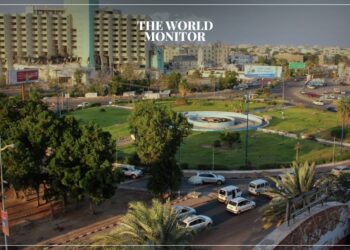In a critical move to revitalize a significant number of government projects that have remained stagnant or only existed in theory, Tunisia’s executive authority, represented by the Presidency and the Government, is actively seeking viable solutions. This initiative comes as the country approaches its local elections scheduled for December 24.
The focus is on diagnosing various situations and urging responsible authorities at the local level to jumpstart these projects. This effort is part of Tunisia’s broader strategy to register positive developments that could benefit the current authority. A key component of this strategy was a ministerial meeting organized to discuss the barriers in completing these projects, steering clear of President Kais Saied’s accusations against the previous government system led by the Ennahda Movement. Saied had accused them of infiltrating the state apparatus, dominating decision-making within the Tunisian administration, and hindering government projects, portraying the authority as incapable.
Tunisian political analyst Jamal Arfaoui revealed to “Al-Sharq Al-Awsat” that there are about 500 stalled government projects. These projects are either unfinished or stuck in the technical study phase. Some began in reality but halted due to various reasons, including successive Tunisian governments’ failure to meet their commitments to project contractors.
Arfaoui added that the reasons for the stalling of government projects are not solely political. Factors such as lack of funding, a decline in local and international investments also play a significant role. Government reports have estimated the value of these stalled projects at approximately 17 billion Tunisian dinars (around 5.7 billion dollars), excluding those that remained mere promises.
Observers note that while President Saied’s explanation of the stalling in project execution—attributing it to “infiltrators who penetrated the Tunisian administration during the rule of the previous political system”—holds some truth, the more realistic explanation lies in the numerous difficulties and obstacles encountered. These include widespread social protests, the demanding nature of impoverished communities, the lack of available resources, and the declining productivity engines essential for wealth creation and employment opportunities.
Ahmed El Hashani, the Prime Minister of Tunisia, chaired the first meeting of the “Higher Committee for Accelerating the Completion of Public Projects,” established by a presidential decree on October 19, 2022. The committee’s goal is to find suitable solutions to expedite the completion of projects spread across more than seven ministries, thereby contributing to the recovery of economic and social growth.
The session examined the progress of public projects and the major issues impeding their implementation. In this context, the committee looked into the best approaches to accelerate completion. It highlighted numerous obstacles hindering progress in a large number of projects, which have been allocated significant financial resources over the years. These projects span sectors like health, transportation, infrastructure, investment, agriculture, environment, youth, and sports.
El Hashani called for bolstering administrations with necessary human resources through attachment or assignment for public service in the shortest possible time. He also emphasized simplifying administrative and legal procedures, streamlining decision-making through delegation, establishing criteria and indicators for prioritizing projects, and ensuring coordination between ministries in strategic projects.
This comprehensive approach by the Tunisian government reflects its commitment to overcoming the developmental challenges, essential for the nation’s progress and prosperity, especially in the lead-up to the crucial local elections






